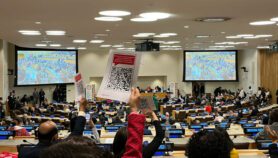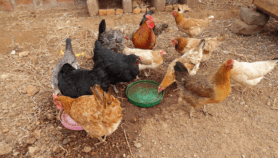By: James Njoroge
Send to a friend
The details you provide on this page will not be used to send unsolicited email, and will not be sold to a 3rd party. See privacy policy.
The South African government has been ordered by the country’s top legal body to provide all HIV-positive pregnant women and their newborn babies with the anti-AIDS drug nevirapine.
The landmark ruling, made last Friday (5 July), requires the government to ensure that the drug — which is currently provided free of charge by several pharmaceutical companies — is made available at all public hospitals.
“The drug is available to the government at no charge, its administration is simple, efficacious and potentially lifesaving,” said Chief Justice, Arthur Chaskalson.
He added that the government’s previous policy of restricting the drug to 18 pilot sites fell short of its constitutional obligation to offer the best treatment available to patients.
The government has been ordered to remove without delay “the restrictions that prevent nevirapine from being made available for the purpose of reducing the risk of mother-to-child transmission of HIV at public hospitals and clinics that are not research and training sites”.
The Constitutional Court ruling in favour of the Treatment Action Campaign — a non-governmental organisation that initiated legal proceedings ten months ago — is a major defeat for the government, which appealed against a similar decision made by the High Court last December.
Health minister Manto Tshabalala-Msimang said the result is in line with the cabinet’s decision to expand its nevirapine programme earlier this year.
“The constitutional court judgement helps to reaffirm the spirit of unity and hope that should characterise the approach of all South Africans in the fight against HIV/AIDS,” she said in a statement released immediately after the ruling.
According to a survey released last year by the South African Medical Research Council, one in nine South Africans is infected with HIV, and between 70,000 and 100,000 babies are born HIV-positive annually. Health activists believe that a universal rollout of nevirapine — said to cut mother-to-child transmission of the HIV virus by up to half — would save at least 30,000 babies annually from contracting the disease.
© SciDev.Net 2002













